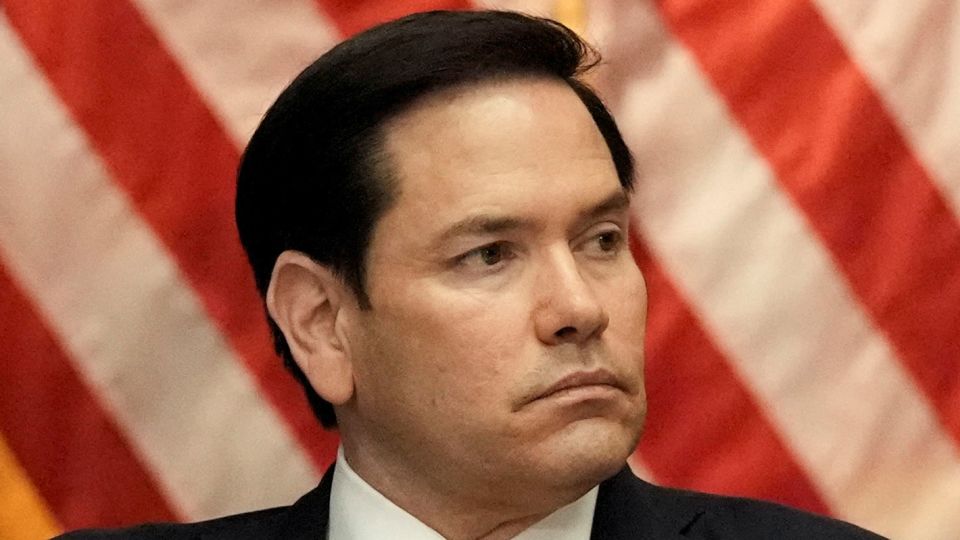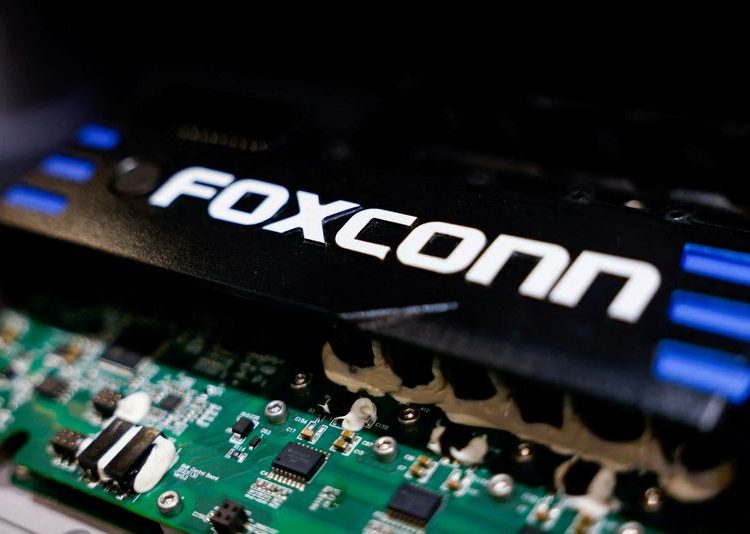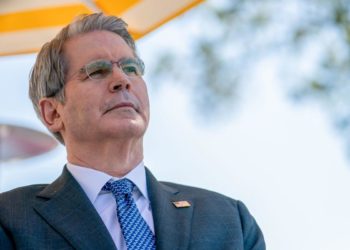A major meeting in London aimed at bringing about an end to Russia’s war in Ukraine has been downgraded after US Secretary of State Marco Rubio said he would skip the summit, escalating a clash between Washington and Kyiv over the future of Russian-occupied territory.
Rubio had been expected to take part in the discussions with Ukrainian, UK and European officials, but State Department spokesperson Tammy Bruce said Tuesday that he would no longer attend due to “logistical issues.”
London’s Foreign Office then confirmed on Wednesday that the meeting would take place at a lower level. “Official level talks will continue but these are closed to media,” the department said in a message to journalists.
The developments throw new uncertainty over the diplomatic efforts to end Russia’s war. The United States has become increasingly steadfast in its push to force Kyiv to an agreement, but Ukraine is adamant that it will not give up Crimea, which has been occupied by Russia since 2014, or parts of eastern Ukraine that were captured following Moscow’s full-scale invasion in 2022.
US Vice President JD Vance threatened to abandon negotiations on Wednesday, telling reporters during a visit to India: “We’ve issued a very explicit proposal to both the Russians and Ukrainians, and it’s time for them to either say yes or for the US to walk away from this process. We’ve engaged in an extraordinary amount of diplomacy, of on the ground work.”
But Ukraine’s European allies, particularly Britain and France, have been hoping to bridge the divide. Wednesday’s talks were due to follow a meeting in Paris last week in which officials from the US, the United Kingdom, France and Germany discussed the American framework for a ceasefire.
After Rubio reversed plans to attend the latest talks, Bruce said President Donald Trump’s special envoy for Ukraine and Russia, Keith Kellogg, would represent the US in London instead.
The US proposal that has caused deadlock includes recognizing Russia’s control of Crimea, the southern Ukrainian peninsula illegally annexed by Moscow, an official familiar with the framework told CNN. It would also put a ceasefire in place along the front lines of the war, the official said.
Any move to recognize Russia’s control of Crimea would reverse a decade of US policy.
Ukraine’s President Volodymyr Zelensky made clear Tuesday that he was open to talks with Russia, but that Kyiv would not accept a deal that recognizes Moscow’s control of Crimea.
“Ukraine will not legally recognize the occupation of Crimea,” he told reporters. “There is nothing to talk about. It is against our constitution.”
Asked to clarify about whether he meant the US wanted to freeze the territorial lines where they are, Vance said Wednesday, “No, I didn’t say that. What I said is the current line, somewhere close to them is where you’re ultimately, I think, going to draw the new lines in the conflict. Now of course, that means the Ukrainians and the Russians are both going to have to give up some of the territory they currently own. There’s gonna have to be some territorial swaps.”
Meanwhile, the war has resumed with full force this week, following a surprise ceasefire over the Easter weekend that both sides accused each other of breaching.
On Wednesday, Ukrainian authorities said nine people were killed and at least 30 wounded when a Russian drone struck a bus carrying people to work near the city of Marhanets in the Dnipropetrovsk region.
Russia’s National Guard said it destroyed 17 Ukrainian attack drones overnight, state-run news agency Tass reported on Wednesday.
Difficult discussions
The talks in London were scheduled as US officials publicly voiced frustration over the lack of progress at bringing an end to the war.
Trump has said he would “have to see an enthusiasm to want to end it” from both sides for the US to continue negotiations, after Rubio warned last week that Washington could walk away from its efforts to end the conflict if there were no signs of progress.
The broad framework has been presented to both sides, Rubio and the State Department have said, to determine whether the differences can be narrowed in a short timeframe. There are still pieces of the framework to be filled out and the US plans to work with the Europeans and the Ukrainians on that this week, the official told CNN.
Trump’s Middle East envoy Steve Witkoff was expected to travel to Moscow this week to continue negotiations with Russian President Vladimir Putin, the White House said Tuesday. The Kremlin confirmed Witkoff’s visit, but did not disclose further details, according to Russian state media.
White House press secretary Karoline Leavitt said Tuesday the negotiations were “hopefully moving in the right direction,” and declined to say what “stepping back” from the peace efforts might look like for the US.
Moscow has previously stalled on ceasefire negotiations and rejected an earlier US proposal for a 30-day ceasefire agreed to by Kyiv.
However, under pressure from Trump, Ukraine and Russia have expressed willingness to negotiate for the first time in years; the two sides have not held direct talks since the early weeks of Moscow’s invasion in 2022.
On Monday, Putin raised the prospect of holding direct talks with Ukraine about a ceasefire that would halt striking civilian targets, but said further discussion was needed on how to define a civilian target.
Kremlin spokesman Dmitry Peskov later confirmed the Russian president’s remarks, saying “(Putin) had in mind negotiations and discussions with the Ukrainian side,” Reuters reported, citing Russia’s Interfax news agency.
This story has been updated with additional information. CNN’s Anna Chernova, Kosta Gak, Kylie Atwood, Kit Maher and Jennifer Hansler contributed reporting.
For more CNN news and newsletters create an account at CNN.com
The post Vance issues Ukraine ultimatum after Rubio snubs key London meeting appeared first on CNN.




